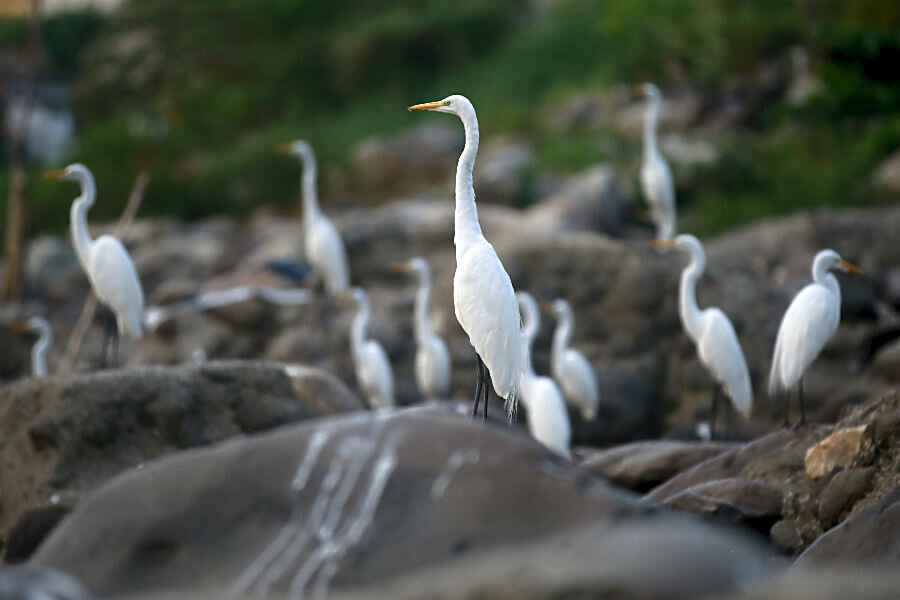For Everglade wading birds, security comes at a high cost
They’re an unlikely pair, the bird and the alligator.
Scientists have long noted that certain species of wading birds take up residence above the scaly reptiles for protection against other predators, it was not until recently that researchers discovered there may be benefits for the alligators as well.
According to a new study that looks at bird habitats in Florida's Everglades, published Wednesday in the journal PLOS ONE, breeding birds that nest above their alligators actually provide substantive sources of food for their reptilian neighbors – dropped chicks.
"Our study is the first to demonstrate a mutually beneficial relationship between nesting birds and a crocodilian,” lead author Lucas Nell from the University of Florida said in a statement. “Nesting wading birds provide nutrition for alligators that, by their mere presence, create predator-free space for birds.”
Dr. Nell and his colleagues looked at the body conditions of alligators who live under wading birds such as herons, egrets, ibises, storks, and spoonbills. While raising chicks, bird species face predation threats from mammals like possums and raccoons, so having an alligator nearby mitigates these risks.
On the other hand, it’s been less well-documented how the alligators might benefit from this arrangement. So, Dr. Nell and his team set out to measure how dropped chicks, which are baby birds dropped from the nest when a bird lays more eggs than it can raise, can improve the health of their beneficiaries. In the study, the authors specifically compared the body conditions of about 40 female alligators living with and without long-legged wading bird nests in proximity to them. Namely, they took blood samples and measured the mass and length of the alligators.
Indeed, across a range of variables, the body condition of alligators that live close to wading bird nesting colonies was higher than those that didn’t. The latter tend to be smaller – the mean body condition for them ranked as the 17th percentile while their peers close to birds ranked as the 63rd percentile.
While further studies may be needed to analyze alligators in different habitats, the dynamic duo exist in many different climate regions including tropical and subtropical wetlands, the results may have prolific relevance across ecosystems.
“Crocodilians and nesting birds co-occur throughout the tropics,” Nell said, “so these may be globally important ecological associations."







